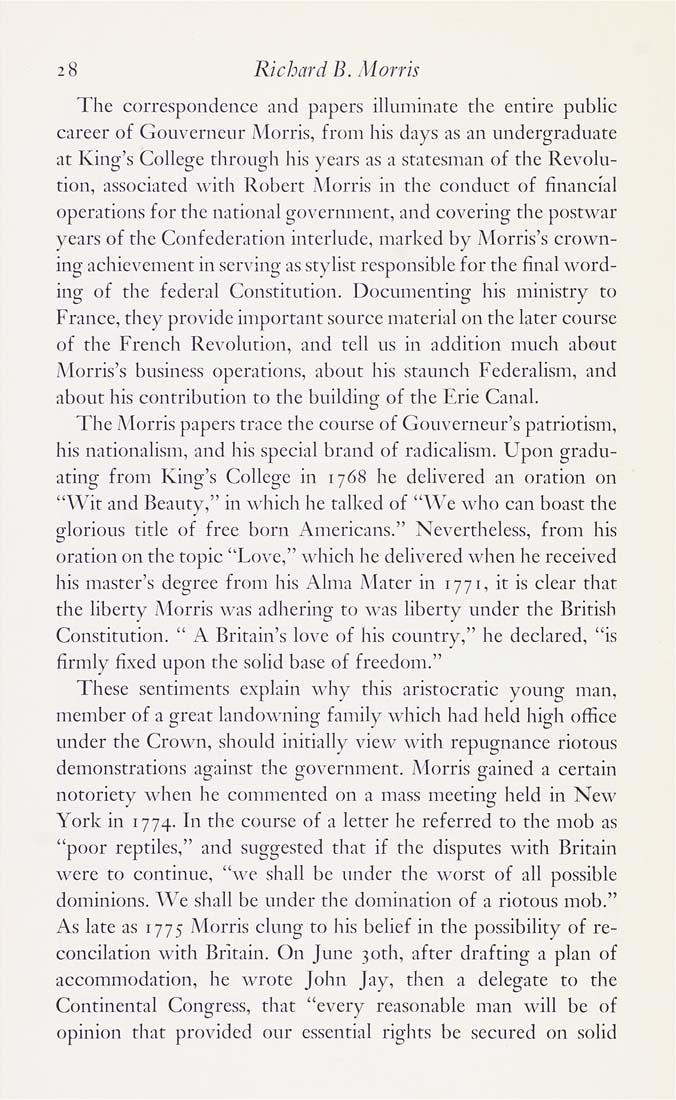Columbia Library columns (v.5(1955Nov-1956May))
(New York : Friends of the Columbia Libraries. )
|
||
|
|
|
|
| v.5,no.1(1955:Nov): Page 28 |

2 8 Richard B. Morris The correspondence and papers illuminate the entire public career of Gouverneur Morris, from his days as an undergraduate at King's College through his years as a statesman of the Revolu¬ tion, associated with Robert Morris in the conduct of financial operations for the national government, and covering the postwar years of the Confederation interlude, marked by Morris's crown¬ ing achievement in serving as stylist responsible for the final word¬ ing of the federal Constitution. Documenting his ministry to France, they provide important source material on the later course of the French Revolution, and tell us in addition much about iMorris's business operations, about his staunch Federalism, and about his contribution to the building of the Erie Canal. The Morris papers trace the course of Gouvcrneur's patriotism, his nationalism, and his special brand of radicalism. Upon gradu¬ ating from King's College in 1768 he delivered an oration on "Wit and Beauty," in which he talked of "We who can boast the glorious title of free born Americans." Nevertheless, from his oration on the topic "Lo\e," which he delivered when he received his master's degree from his Alma Mater in 17 71, it is clear that the liberty Morris was adhering to was liberty under the British Constitution. " A Britain's love of his country," he declared, "is firmly fixed upon the solid base of freedom." These sentiments explain why this aristocratic young man, member of a great landowning family which had held high office under the Crown, should initially view with repugnance riotous demonstrations against the govetnment. Morris gained a certain notoriety when he commented on a mass meeting held in New York in 1774. In the course of a letter he referred to the mob as "poor reptiles," and suggested that if the disputes with Britain were to continue, "we shall be under the worst of all possible dominions. We shall be under the domination of a riotous mob." As late as 1775 Morris clung to his belief in the possibility of re- concilation with Britain. On June 30th, after drafting a plan of accommodation, he wrote John Jay, then a delegate to the Continental Congress, that "every reasonable man will be of opinion that provided our essential rights be secured on solid |
| v.5,no.1(1955:Nov): Page 28 |







